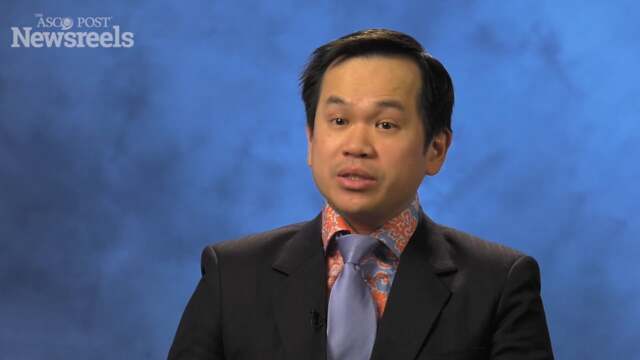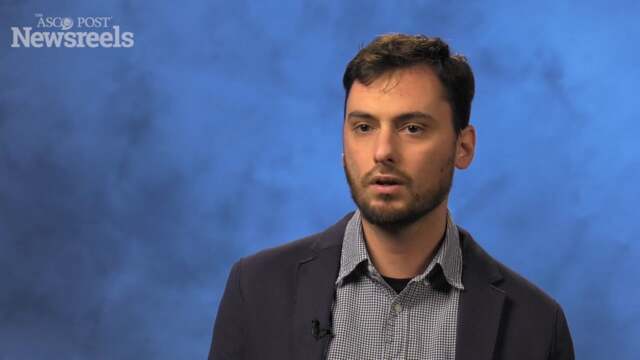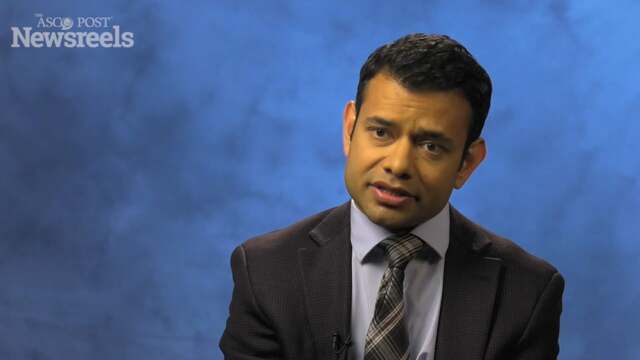Roland Seiler, MD, on Bladder Cancer: Subtypes and Treatment Response
2017 Genitourinary Cancers Symposium
Roland Seiler, MD, of the University of British Columbia, discusses a way to identify molecular subtypes of muscle-invasive bladder cancer, the varying responses to cisplatin-based neoadjuvant chemotherapy, and which patients show the most benefit. (Abstract 281)
Emma Hall, PhD, of the Institute of Cancer Research, London, discusses long-term outcomes with chemoradiotherapy vs radiotherapy alone, and standard vs reduced high-dose volume radiotherapy in muscle-invasive bladder cancer. (Abstract 280)
Paul L. Nguyen, MD, of the Dana-Farber Cancer Institute, discuses an evaluation of the Decipher prostate cancer classifier to predict metastasis and disease-specific mortality from genomic analysis of diagnostic needle biopsy specimens. (Abstract 4)
Joshua Armenia, PhD, of Memorial Sloan Kettering Cancer Center, discusses new information that is changing the understanding of prostate cancer, including the identification of a new subclass, which represents 21% of cases, and the discovery of recurrently mutated cancer pathways not previously implicated in prostate cancer (Abstract 131).
Sumanta K. Pal, MD, of the City of Hope, discusses the evolution of circulating tumor DNA profile from first-line to second-line therapy in metastatic renal cell carcinoma. (Abstract 434)
Charles G. Drake, MD, PhD, of Columbia University Medical Center, summarizes his keynote lecture on immunotherapy as a new frontier in prostate cancer and its synergistic use with traditional treatments.





